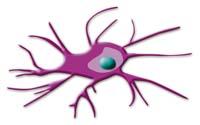Halfway to the therapeutic AIDS vaccine

Recently, the Hospital Clinic in Barcelona has presented a vaccine for the treatment of AIDS. The research, published in the specialized journal Journal of Infectius Diseases, has generated a hopeful message with the results obtained.
The study involved 24 patients without antiretroviral treatment. Half have formed a control group (they have not received the vaccine) and the other half have received the vaccine from their dendritic cells.
Dendritic cells are immune system cells and gave volunteers three doses of personalized vaccines with them. Researchers have shown that in 24 weeks the number of viruses they had in the blood, i.e., viral load, decreased considerably. Although in no case it was reduced to imperceptible levels, they point out that among the therapeutic vaccines that have been tested so far have obtained the “best result”.
Therefore, they spread this message to the media. However, other researchers have taken the news wisely. For example, the microbiologist Asier Saez-Cirión of the Institut Pasteur in Paris.
Saez-Cirio works in the Retroviral Infection Regulation Unit and knows closely some of the researchers who have participated in this research and their work, with whom he collaborates in other research. He believes the results are "very modest."
In addition, although the technique used was effective (and it does not seem a good way, since in other research they have shown that these dendritic cells have largely lost their functions), it would not be useful since it is very complex and expensive: "This treatment would be unthinkable in developing countries."
Therefore, although the results have been considered "interesting", from the point of view of the patients it does not consider that there has been any progress.





